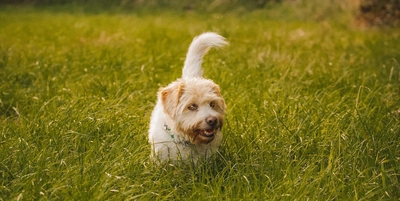Can Dogs Get Chicken Pox?
- 13 Sep 2023
- 2m read

Chicken pox is a contagious viral infection that has been experienced by most humans at some point in their lives. It's characterised by an itchy rash, fever, and flu-like symptoms.
But what about our loyal canine companions? Can they also be afflicted by this viral illness?
Is it Possible for Dogs to Get Chicken Pox?
No, dogs cannot get chicken pox.
The chicken pox virus is highly adapted to infect humans, and it has limited potential to infect other species. Dogs, with their unique biology and immune system, are not a natural host for this virus.
Is It Possible for Dogs to Get Shingles?
Dogs are incredibly unlikely to get shingles.
Shingles, also known as herpes zoster, is a viral infection that can occur in individuals who have previously had chicken pox. It arises when the varicella-zoster virus, which remains dormant in the body after an initial chicken pox infection, becomes reactivated.
While it is theoretically possible for dogs to get shingles, the chances of this happening are extraordinarily low.
Much like the rarity of chicken pox occurring dogs. The virus primarily targets humans, and its activation in dogs is an unusual and rare event.
Can I Touch My Dog If I Have Chicken Pox?
If you've contracted chicken pox and are a pet owner, a common concern is whether you can safely interact with your furry friend. While the risk of transmitting chicken pox to your dog is minimal, it's essential to take precautions to ensure the well-being of both you and your pooch.
Here are some practical guidelines to follow:
Maintain good hygiene
Continue practising proper hygiene, including frequent handwashing with soap and water. This is crucial to minimise any potential transmission of the virus.
Avoid close contact
While the risk is low, it's advisable to avoid close contact with your dog during the active phase of your illness. This includes refraining from close cuddles, kisses, or allowing your dog to lick your face.
Limit handling
If you are feeling unwell, it's a good idea to limit handling your dog. If possible, ask a family member or friend to assist with their care during this time.
Consult your vet
If you have any concerns about your dog's health or behaviour during your illness, do not hesitate to consult your veterinarian. They can provide guidance and advice tailored to your specific situation.




